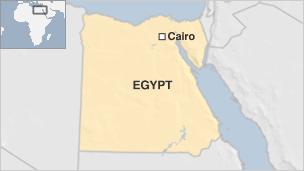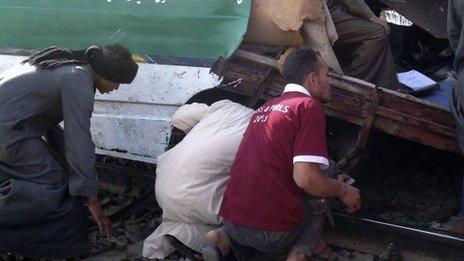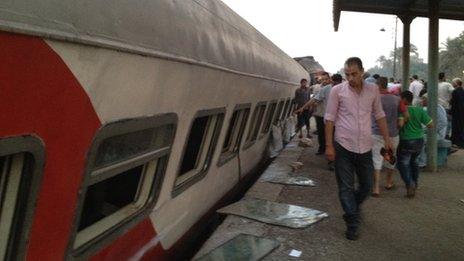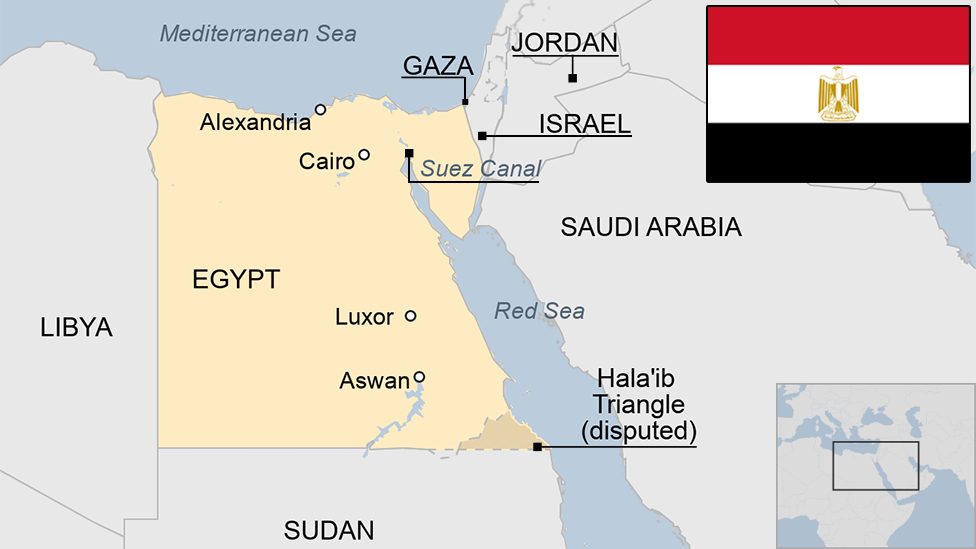Cairo train derailment leaves 19 dead
- Published
The train was carrying military recruits to an army camp in Cairo
A military train carrying army recruits has derailed south of Egypt's capital, Cairo, killing 19 people and injuring more than 100, officials say.
The train was heading to an army camp in Cairo when a carriage became detached and crashed into a goods train in the Badrashin area of Giza.
Egypt's prime minister visited the scene, but was led to safety after being abused by angry bystanders.
Egypt's roads and railways have a notoriously poor safety record.
Last November 50 children died when a train hit their school bus near Manfalut, 350km (230 miles) south of Cairo, after a signal operator fell asleep.
The transport minister and the head of the railway authority were forced to resign in the wake of the crash.
Anger has been directed towards the government for failing to improve railway safety and infrastructure.

People at the scene of the latest crash shouted at Prime Minister Hisham Qandil "You have blood on your hands", before he was led away by his security guards, AFP news agency reported.
Monday's incident occurred as the army train was heading from Upper Egypt into Cairo.
Reports say more than 1,300 passengers were aboard the train when it derailed shortly after midnight.
An eyewitness, Mohammad Abul-Fadl, told BBC Arabic many victims were trapped.
"Ambulances didn't arrive for half an hour. There were bodies everywhere," he said.
"An hour and a half later and the railway authority [had not] sent any lifting equipment. Local people tried to help. They've even brought in a loader from the local authority to bring out some of the trapped victims, who were still alive, from under the wreckage.
The latest incident could increase the pressure on the government to tackle the safety of trains, the BBC's Said Shehata reports from Cairo.
Four years ago, some 18 people were killed and dozens injured in a collision between two passenger trains in the Giza area.
And in 2002, a train caught fire in Cairo, killing 373 people.
- Published17 November 2012

- Published17 July 2012

- Published2 January 2024
